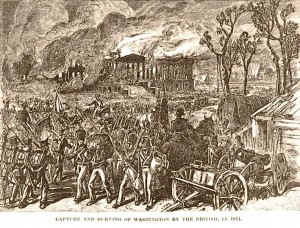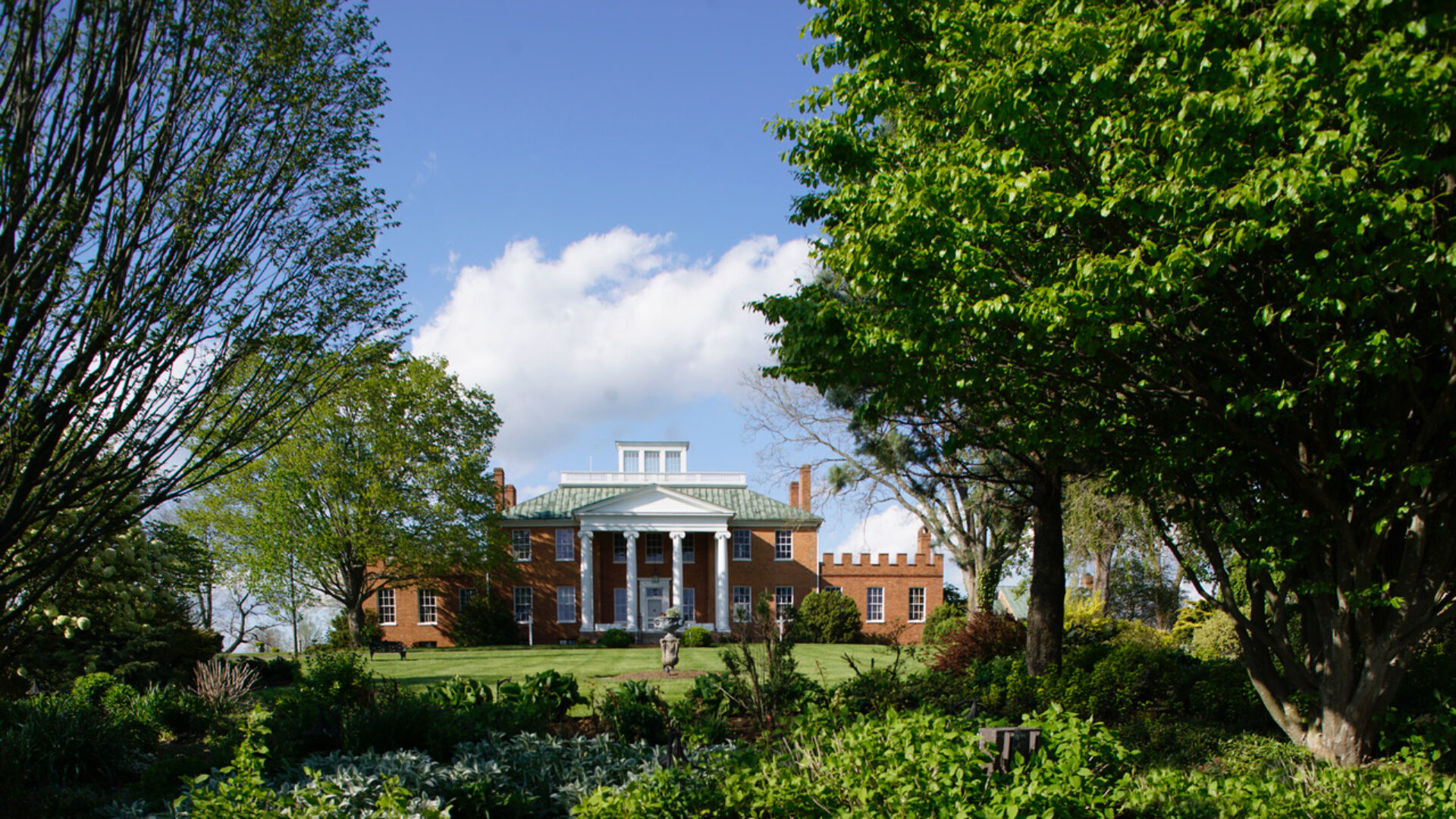A humorous take on the War of 1812:
Robert Carter Burwell, the man who built Long Branch and Captain of the 51st Regiment of the Virginia Militia, fought and died in the War of 1812. Unlike the soldiers in College Humor’s video, Burwell knew why and against whom he was fighting, but if you are confused about the War of 1812, you aren’t the only one. The War of 1812 is often glossed over in textbooks. The name itself gives people the idea that it was a short, insignificant skirmish. Even details such as who fought with whom are usually forgotten or waved off as inconsequential. In reality, the War of 1812 was a significant event for the newly-established United States of America.

The War of 1812 began in large part because of Great Britain’s war with Napoleon Bonaparte. While the British and the French were engaged in war, the United States took the opportunity to make capital gains through indiscriminate sales of supplies to both nations’ armies. Neither France nor Great Britain was pleased by this. In 1809, Great Britain passed the Orders in Council, requiring countries not involved in the Napoleonic Wars to obtain a trading license before trading with France or French colonies. France also passed trade restrictions with the United States. The United States itself, under the presidency of James Madison, passed several laws restricting trade with both powers in an attempt to avoid conflict. This strategy was largely unsuccessful. In May of 1810, Congress passed a bill stating that the United States would trade with the nation that dropped its trade restrictions first. Napoleon seized this opportunity, and James Madison blocked American trade with Great Britain that November.
Apart from trade disagreements, the British Royal Navy had been practicing a policy of impressing–or forcing into service–American sailors. Additionally, the British were interfering in American expansion in the West. The British who remained stationed in North America after the Revolutionary War had established good relations with the Native American population. In exchange for their support, the British gave Native Americans weapons with which to fight off westward settlers. Some congressmen—dubbed the “War Hawks”—urged Madison to declare war against Britain. They were angry that Great Britain had been violating maritime rights and interfering with westward expansion. These congressmen warned Madison that something must be done.
James Madison signed a declaration of war against Great Britain on June 18, 1812. The United States began their campaign in Canada, a British colony, but the war soon spread south as well. The Battle of New Orleans in Louisiana, for example, is where future president Andrew Jackson would gain fame through his decisive victory over the British. The British guarded Canada with the aid of Native Americans, and focused heavily on the east coast of the United States. They blockaded the eastern seaboard and razed the Capitol; both the White House and the Capitol Building were burned down. The war carried on for two and a half years, ending with the signing of the Treaty of Ghent on December 24, 1814. Though technically neither side won, this war had a significant impact on the United States and the Native American population. While the nation didn’t accomplish any of its pre-war goals, the US did earn legitimacy as a nation on the world stage, and its citizens felt a sense of victory. This confidence would boost the drive for westward expansion, pushing the Native Americans out of their territories and onto reservations. The hope of creating a Native American state in the Northwest as promised by the British was gone.
– Casey Marion, Long Branch Plantation Intern
